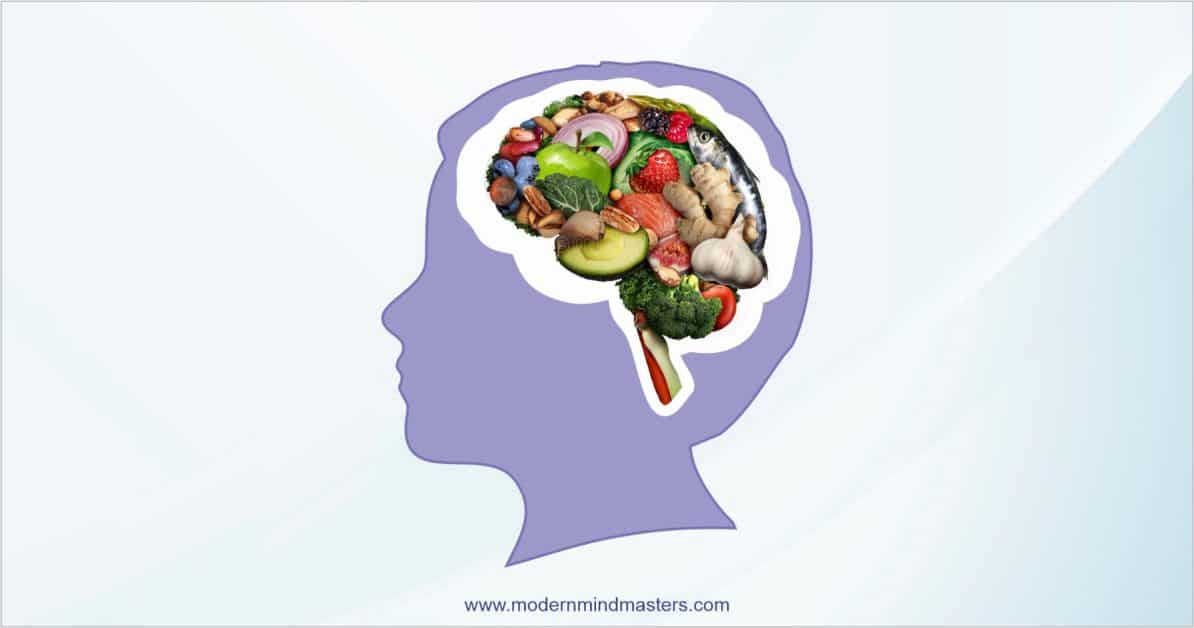5 Simple Steps to Improve Your Well-being
Key Points:
- The field of Positive Psychology focuses on well-being as the foundation of happiness.
- This is achieved using PERMA: Positive emotion, engagement, relationships, meaning, accomplishment.
- Apply the five simple steps listed below to boost your sense of well-being today.

Modern life is stressful. We wake early, toil away our productive hours working for someone else, try to keep up with payments on ever-increasing mortgages and utilities, compare ourselves to unrealistic standards on social media, and then collapse on the sofa when we’ve exhausted our mental reserves. And then we sleep and repeat.
Although this is nothing new (past generations worked 10-12 hours a day for 6 or 7 days a week), one advantage of an increasingly technological and modern society should be an improvement in our general well-being.
Yet this is rarely the case. School prepares us to work, but not to be happy. It allows us to survive, but not to thrive.
That is my mission to change.
This article will go into detail about the steps you can take to boost your well-being. These aren’t magic solutions to completely change your life (this would require more than a mere article), but they are simple steps that can be incorporated into your life right now to manually induce more positive feelings of fulfillment and happiness.
This article carries on from a previous post on the science of Positive Psychology and the importance of well-being towards achieving a fulfilling life of satisfaction and happiness. Don’t worry if you haven’t read it yet. You can either read it here or read the recap below for a brief overview.
If time is limited, you can skip straight to the 5 steps here.
Positive Psychology Recap
Positive Psychology is not just a buzzword, it is a very tangible scientific field pioneered by Dr. Martin Seligman. Whereas traditional psychology has focused on rehabilitating people back to normal (i.e. from -8 back to a normal of 0), positive psychology focuses on flourishing above normal (i.e. going into the positive numbers).
Well-being
The core principle of positive psychology is improving our well-being.
Well-being goes beyond simple happiness, which is merely a smaller and shorter-lived component of the grander vision of well-being. It requires a shift in mental perspective to encourage a different outlook towards people, interactions, and experiences.
The skills we need to increase our well-being are different from the skills required to alleviate suffering, hence the need for the two different types of psychology.
PERMA - The Secret Formula to Permanent Well-being
PERMA, an acronym that encompasses all of the components needed to achieve a state of well-being, consists of five key categories:

1) Positive Emotions
These are simply emotions that make us feel good, such as the joy from watching a movie or the awe induced from walking through the wilderness.
While positive emotion can provide intense happiness, these feelings are usually short-lived and last only as long as the activity itself (such as the joy of basking in the warmth of the Sun ending as soon as you leave the beach).
2) Engagement
This is the experience felt when one’s skills, strengths, and attention are dedicated to a challenging or rewarding task. We know we are engaged when the task at hand becomes our sole focus and we become “in the zone”.
3) Relationships
We don’t need to have studied positive psychology to know that healthy relationships are vital for well-being.
Without them, your primitive mind will feel isolated and you will be flooded with unpleasant thoughts of loneliness and abandonment to prompt you into change.
Unfortunately, many do not understand why we have these thoughts and believe it is a personal problem unique to themselves, often leading to depression where it need not.
4) Meaning
Living a meaningful life relates to attaching oneself to a purpose of higher meaning than just one’s own needs.
Loving someone, and being loved in return, is a meaningful phenomenon because such acts inspire us to live for a cause beyond our own existence.
As we grow and develop we must find out what values and characteristics are most important to us and devote ourselves to activities that best complement them.
5) Accomplishment
The final component of well-being, accomplishment, builds self-esteem and provides valuable reassurance to your subconscious mind that you are capable and valuable.
Whether it be through a career, sports, games, or hobbies, accomplishment strengthens inner confidence with each success, no matter how small.
Your Free Book is Waiting
You’ll Learn:
- How to Create Habits – The Right Way
- Create a Bulletproof Plan to Achieve Your Goals
- Master the Art of Failing
- Rediscover Your Love of Learning
- Instantly Become More Personable

5 Simple Steps to Boost Your Well-being
Step 1: Create Yourself a Positive Day
Why wait for pleasure and positive emotion to come to you when you can create it yourself? Plan a time that focuses only on the things you love to do and which please you. Ideally, this would be an entire day, but it can also be a weekend or just a few hours. Anything is better than nothing.
This day/week/afternoon must be a break from all stresses of life, such as work and sometimes even family. Love to watch movies? Then spend the whole day binging on your favorite programs. Love nature? Plan a little trip visiting a few of your most inspiring spots.
Mix it up; go for an inspirational walk in the morning, stop at your favorite restaurant for lunch and play video games for the rest of the evening. If you can’t manage an entire day, dedicate a morning or evening doing only the things that bring you joy.
As long as the activities bring you significant pleasure there should be no judgment or guilt. And, most importantly, ensure you enhance the experience by being mindful and appreciative of how pleasurable these activities are.
Obviously, this cannot be done every day; most of us have to work or take care of family life. But whether it be once a week or once a month, create a day solely for you to appreciate the things in life that you find pleasurable.
Rarely do these pleasurable days just fall into your hands. We must set them up in advance and ensure we dedicate ourselves to them unconditionally.
Step 2: Find People and Activities that Align with your Values
To lead a satisfying life we must seek experiences that align with our values and avoid those that don’t.
A career aligned with your strengths will prove extremely engaging, especially if it enables you to reach a state of flow (a technical term for the feeling of being “in the zone”).
Of course, no career is without its ups and downs, but on the whole, you should be able to look back and identify how it promotes some of your most important values. If it doesn’t you might want to look into different career paths more aligned with your strengths.
Remember, to be satisfied with your career, you must derive pleasure, engagement, and meaning from it.
You should also seek other activities and experiences outside of your career that align with your values. Hobbies, passions, and leisure activities that give you pleasure, engagement, and meaning will ultimately add greater satisfaction to your life. Whether it be gardening, extreme sports, or stamp collecting, always explore hobbies and activities that pique your interest.
Finally, spending time with people who also hold similar signature interests will further strengthen your life satisfaction. Relationships are enhanced when we find common similarities, so explore activities where you can create and strengthen friendships. You never know where they might lead.
Step 3: Create a Gratitude Journal
Step 4: Do Something Philanthropic
Fun and philanthropy elicit two different emotional responses. Fun can be visualized by a square wave set – your pleasure is high whilst engaging in the fun activity but it rapidly drops to its resting state once the activity is finished. The pleasure derived from fun activities lasts only as long as the activity itself.
Philanthropic endeavors, on the other hand, have a wave peak that remains high once the activity is over, fading slowly over time. Philanthropy can also boost engagement, meaning, relationships and accomplishment; hitting all five well-being components.
There are myriad ways we can engage in philanthropy. Volunteering, whether it be at a soup kitchen, animal shelter, or care home is a common way to start.
But philanthropy does not have to involve strangers. You can start within your own home. Prepare a nice dinner for your partner, take your kids to a theme park or simply call your parents for a conversation.
Whatever it is, helping others and seeing them happy because of your actions incites a greater and longer-lasting pleasure peak than temporary pleasure because they target a greater number of components of well-being, especially meaning and relationships.
Step 5: Note Three Things That Went Well Each Day
I know, I know, it sounds cliche, but the return on investment for this simple activity is unbeatable.
Spending just a few minutes each morning writing a few lines of what you’re most grateful for yields a whole day of greater positivity.
The subconscious mind always tilts towards the negative (the negativity bias is a biological mechanism etched into our DNA), so we have to use the conscious mind to manually tilt the scale toward the positive.
Every morning I create my gratitude list. This is best performed earlier so you can reap the results over the rest of the day. The list below shows a few of my personal gratitudes list over the past week:
- I am grateful for my inquisitive nature helping me learn something new every day,
- I am grateful for the opportunity to be a leader and develop myself and others,
- I am grateful for my friend inviting me over for dinner yesterday,
- I am grateful for the continued health of my family,
- I am grateful to live in such a beautiful city where I can appreciate the beauty of the snow-capped mountains on my drive to work every morning.
Natural beauty instills much positive emotion in me. So I am extremely grateful to be living in a city of extreme natural beauty, where I can view the snow-capped mountains on my drive to work every day.
Some days I am so concerned about work or family that I simply drive past them, stuck in my own little world. But as often as I can remember, I manually rebalance my positivity by actively appreciating Canada’s natural beauty by writing it in my gratitude diary.
Having done this for many years now, I no longer need to write them down every day. My conscious mind has developed the habit of finding gratitude every morning and I now do it automatically.
On some tough days, or days where I am feeling particularly negative, I make the effort to manually write them down, an extra step to fight the negativity bias. But no matter how large or small, identifying the things in life that you should be grateful for sets you up for a more positive day.
The power of the negativity bias means that one small negative event can overshadow the rest of the day’s activities.
Perhaps you went for a wonderful walk at lunch, watched your child’s first Christmas play, or were praised for a good report at work. Yet that one motorist who cut you up on your commute home dominates your thoughts. Your whole evening may be overshadowed by a negative event, causing you to forget the many positive ones that preceded it.
Every night I identify three positive things that occurred that day. For instance, I may have finished a chapter of my book, I may have witnessed a beautiful sunset, or closed a big sale.
This simple act can help bring to your attention the fact that, despite the few minor negative events that usually dominate the mind, the day was actually filled with positive events. It was a good day! You should be happy.
You can write this in the same place as your gratitude list. Or you can make it a mental exercise.
I prefer to write it down so I have material to look back through and measure my progress. Either way, the act of consciously thinking about it helps manually rebalance the negativity bias. It also helps you to stay focused on your goals. It is also a great way to avoid procrastination.
Often, these positives include the day’s accomplishments. You should be setting goals with a mechanism for tracking their progress. Identifying the completion of daily tasks which contribute to your goals will boost your positivity and help encourage you to keep going.
Conclusion
As you can see, these five steps are simple in practice and do not require a complete overall of your life or a large time commitment.
But they are active changes, which, like the stock market, will compound over time with minimal but frequent input.
Despite what others may tell you, there is no “get rich quick” equivalent for mental health. Real change is determined by consistency. We have to instill good habits, kick bad ones, and allow enough time to reap the rewards.
So start today with these 5 simple steps and watch as time allows you to flourish.
Let me know what you think below in the comments!

Disney, Ford, and Sanders – History’s 3 Most Successful Failures
How Disney, Ford, and Sanders overcame repeated setbacks to become 3 of history’s most successful failures

What Is Dopamine And What Does It Do?
Dopamine is a neuromodulator that acts as a messenger between neurons. It determines the amount of motivation and drive to achieve something and leave our comfort zone.

The Subconscious Mind – What Is A Subconscious?
The subconscious mind has long been surrounded by mystery, but cognitive sciences are unravelling the mystery.

The Ultimate Guide to Personal Development
If you are not learning, you’re not earning. This guide to personal development will provide the knowledge and tools to take you to the next level.

Nutritional Psychiatry – Foods the Brain Needs for Success
The brain needs many foods for success; a lack of any one of the hundreds of nutrients will result in poor cognitive health and performance.

3 Books You Need to Read to Create Good Habits
Habits are the foundation of success and we are merely the result of good habits compounded over time. Here are the best 3 books on habits that will change your life.